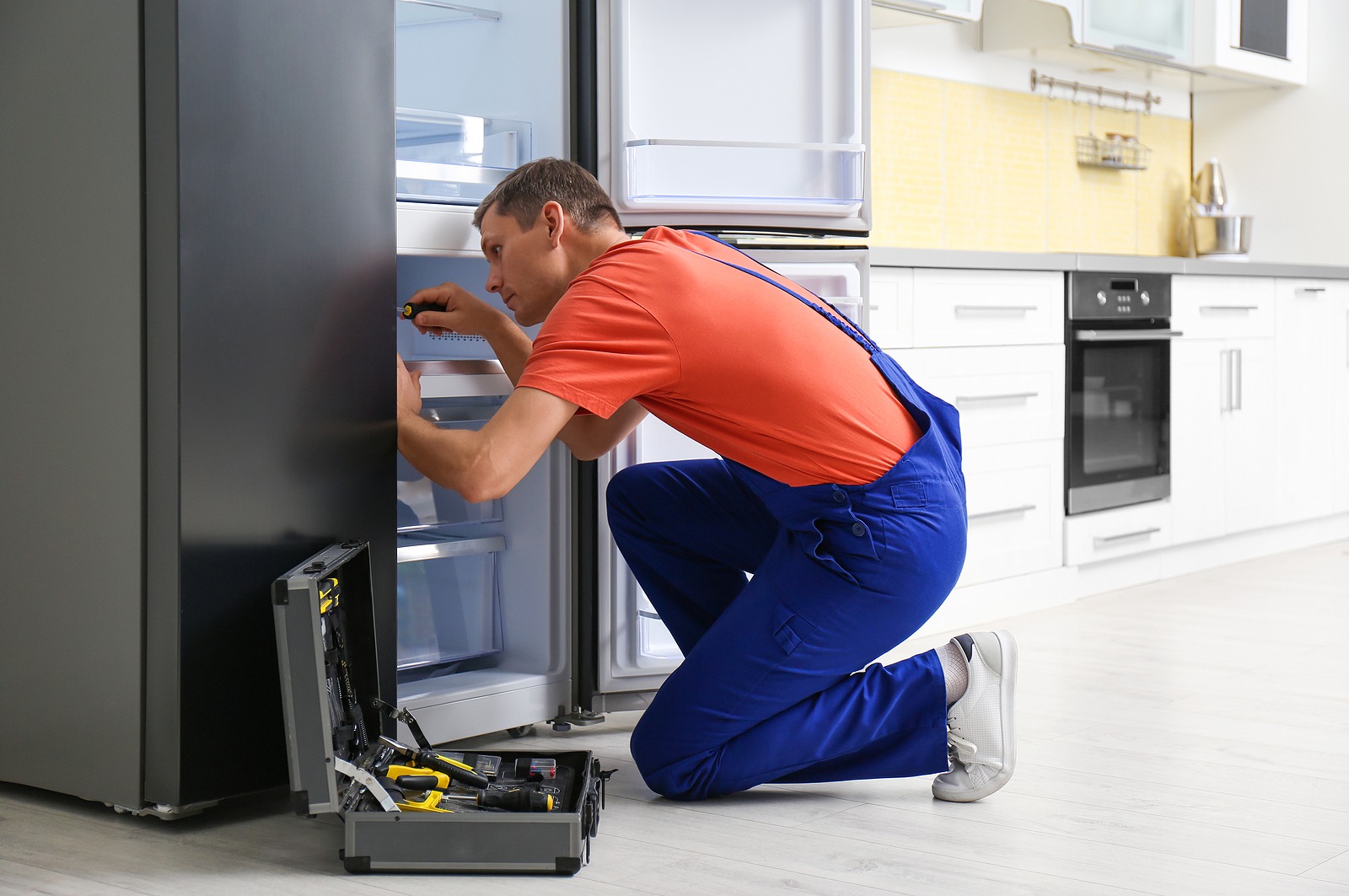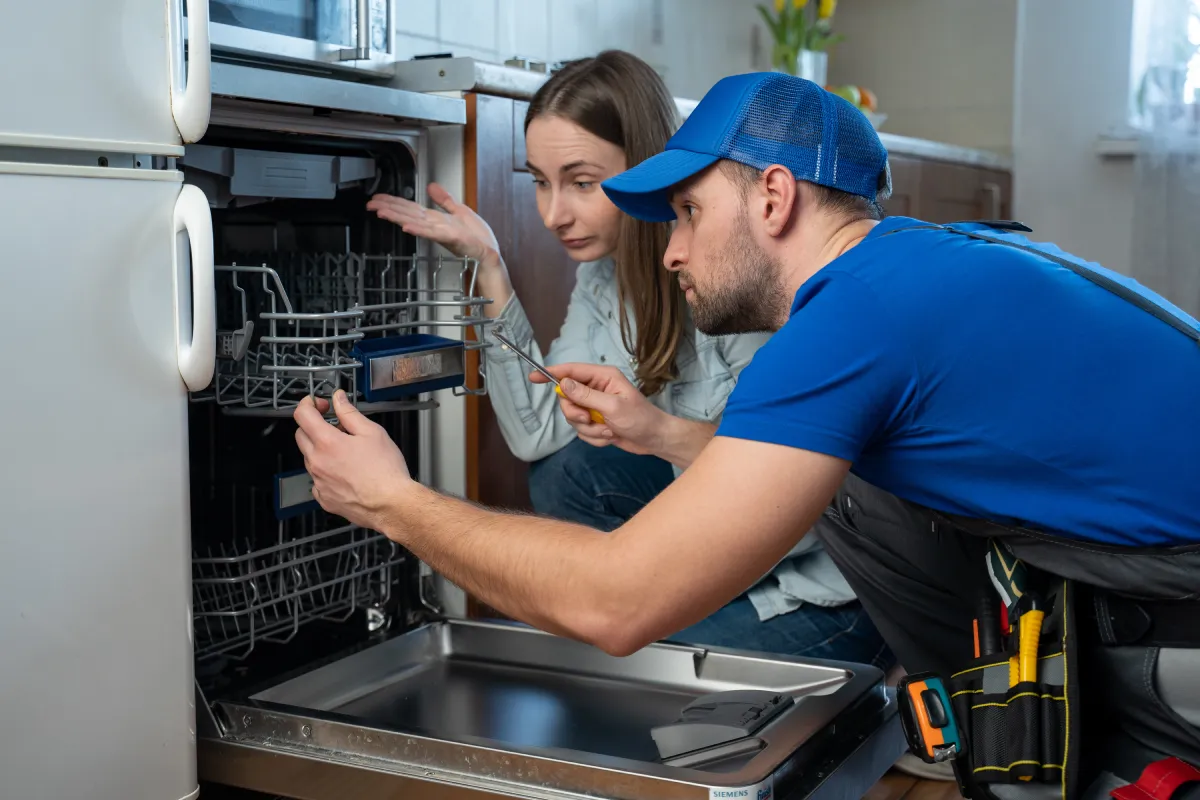The Ultimate Overview to Comprehending Appliance Fixing in your home
When your refrigerator stops cooling or your oven refuses to warm, it can really feel frustrating. Comprehending appliance repair service in your home can conserve you money and time. You'll find out to acknowledge signs and symptoms, make use of vital tools, and comply with a systematic troubleshooting process. However prior to you begin, there are essential security precautions you need to take into consideration. What are the most usual troubles, and how can you repair them? Allow's discover the fundamentals.
Usual Device Troubles and Their Signs and symptoms
When your appliances start breaking down, it's vital to recognize the signs beforehand. Disregarding them can bring about larger concerns and costly repair work. If your fridge isn't cooling down effectively, you might observe warm spots or condensation creating. This could suggest a stopping working compressor or a blocked vent.Your dishwashing machine may reveal problems through unclean meals or unusual noises throughout cycles. If you hear grinding or clanking, it's time to investigate.A cleaning machine that will not rotate or drain can leave you with soaked washing, suggesting a stopped up drain or a malfunctioning pump.Lastly, if your oven's temperature level appears off or it takes permanently to preheat, you could be managing a damaged thermostat. By staying sharp to these signs, you can resolve concerns prior to they intensify into significant repair services.
Important Devices for Device Fixing
When you're taking on device repairs in the house, having the right devices is necessary. Standard hand tools like screwdrivers and pliers will help you disassemble and repair different devices, while electrical testing devices assure you're functioning securely with circuitry. Let's review what you need to get going on your repair work journey.
Fundamental Hand Tools
Having the right devices is essential for reliable home appliance repair in your home. Beginning with a reliable screwdriver set, including both flathead and Phillips kinds, as screws prevail in device assembly. Pliers are additionally vital; they assist with gripping, turning, and cutting wires or tiny components. A set of needle-nose pliers can get to tight places conveniently. You'll require a great adjustable wrench for tightening up or loosening nuts and screws. An utility blade comes in handy for puncturing packaging or insulation. Do not forget a tough workbench or surface area to securely arrange your devices and components. With these fundamental hand tools, you'll be well-prepared to tackle most appliance fixings that come your way.
Electric Testing Gadgets
Along with standard hand devices, electric screening tools play an important role in home appliance repair service. These devices assist you diagnose electrical problems and assurance home appliances operate safely. A multimeter is vital; it measures voltage, existing, and resistance, allowing you to determine troubles quickly. A non-contact voltage tester is one more must-have, allowing you detect live cables without making direct get in touch with, improving your safety and security. Clamp meters are excellent for determining existing flow in wires without detaching them, conserving you effort and time. Additionally, circuit testers can promptly check if electrical outlets are functioning appropriately. By utilizing these gadgets, you'll improve your troubleshooting process and improve your repair work skills, making appliance maintenance a great deal much easier.
Step-by-Step Overview to Diagnosing Appliance Issues
When your appliance breaks down, it can be aggravating, but diagnosing the concern doesn't need to be overwhelming. You'll find out to identify usual issues and apply reliable fixing techniques. Let's go through the actions to obtain your device back in working order.
Typical Device Problems

Troubleshooting Methods Described

Fixing Significant Kitchen Appliances: A Closer Look
Have you ever wondered how to take on usual problems with your kitchen area devices? Repairing major kitchen devices like refrigerators, ovens, and dishwashing machines can be easier than you assume. Beginning by determining the issue-- whether it's a fridge not cooling or an oven that will not heat up. Typically, a simple reset or examining the power resource can solve the issue.For refrigerators, tidy the condenser coils and examine the door seals. If your stove's not home heating, examine the heating element and thermostat. Dishwashing machines might simply require a clean filter or a reset to obtain them back in activity. Always disconnect the appliance before diving into fixings to assure your safety.Don' t forget to consult the user handbook for specific troubleshooting suggestions related to your design. With a little bit of patience and the right devices, you can with confidence take on home appliance repair work and conserve money at the same time!

Troubleshooting Washing Devices: Tips and Techniques
When your washing appliances start breaking down, it can feel frustrating, yet troubleshooting them doesn't need to be a trouble. Beginning by examining the power supply. Validate the appliance is connected in and the electrical outlet is working. Next, inspect the door or cover button; a malfunctioning button can protect against the machine from operating.For washing machines, if it's not spinning, look for out of balance loads. Redistributing the clothing may address the concern. If your clothes dryer isn't heating, clean the dust filter and examine the vent for blockages.Listen for uncommon sounds; they can indicate a problem. If your appliance is dripping, check the hoses for splits or loose links. File any type of error codes presented on digital displays, as they can direct you in determining the concern. Finally, consult the user handbook for particular fixing tips connected to your model.
Safety And Security Precautions to Take During Fixes
Prior to you begin any type of appliance repair services, it's vital to prioritize safety to avoid crashes or injuries. First, disconnect the home appliance or shut off the circuit breaker to ensure no power reaches it while you function. Usage shielded tools to minimize the risk of electric shock. Use security goggles and gloves to protect yourself from sharp sides or debris (Washer dryer repair service Dependable Refrigeration).Make certain your office is tidy and well-lit, so you can see what you're doing. Keep kids and pets far from the area to prevent diversions and prospective risks. If you're handling gas home appliances, be added cautious; check for leakages before proceeding.Take your time, and do not rush with repair services. If you feel unsure concerning any kind of step, it's better to stop briefly and research study than to think. Adhering to these safety measures will certainly assist create a more secure atmosphere for your DIY appliance repair work project
When to Call a Professional for Help
Just how do you know if it's time to call in an expert for appliance repair work? If you have actually tried basic troubleshooting without success, it's a clear indication. As an example, if your device still will not begin or shows unusual noises after resetting it, do not wait to look for professional help.When you notice leaks, smoke, or shedding scents, prioritize safety and security and call a pro right away. These concerns can result in more substantial damage or position threats to your home.Also, if your home appliance is under warranty, speaking to an expert is commonly the finest path. They can ensure that fixings will not void your warranty, conserving you cash in the long run.Finally, if you're unclear or unpleasant with complicated repairs, it's a good idea to leave it to the experts. Bear in mind, taking on complicated problems without the best experience can lead to pricey errors. Depend on a professional when doubtful!
Frequently Asked Concerns
How Can I Avoid Device Problems in the Future?
To avoid appliance issues in the future, you should carry out routine upkeep, look for deterioration, tidy filters, and stay clear of overloading. Staying proactive will assist prolong their life-span and keep them running efficiently.
What Are the Many Typical Do It Yourself Home Appliance Repair Mistakes?
You may forget security precautions, miss troubleshooting actions, or use incorrect devices when trying DIY device repair services. Rushing the procedure or ignoring manufacturer guidelines can bring about even more considerable issues and expensive errors. Stay individual and educated!
Just how Do I Know if a Component Needs Replacement?
You can inform if a part needs replacement by checking for unusual sounds, leaks, or irregular performance. If the home appliance has a hard time to operate appropriately or reveals noticeable damages, it's most likely time for a substitute.
Can I Utilize Generic Components for Device Repairs?
Yes, you can utilize generic parts for device fixings, but ascertain they're suitable - Dependable Refrigeration & Appliance Repair Service Washer repair near me. Common parts could conserve you cash, however they can affect performance or durability, so weigh your alternatives carefully prior to making a decision
What Guarantees Cover Home Appliance Repairs?
Most appliance warranties cover repairs for producing problems, yet they usually exclude damages from misuse. Inspect your service warranty terms carefully, as some may call for using qualified specialists and original parts for protection to stay legitimate.